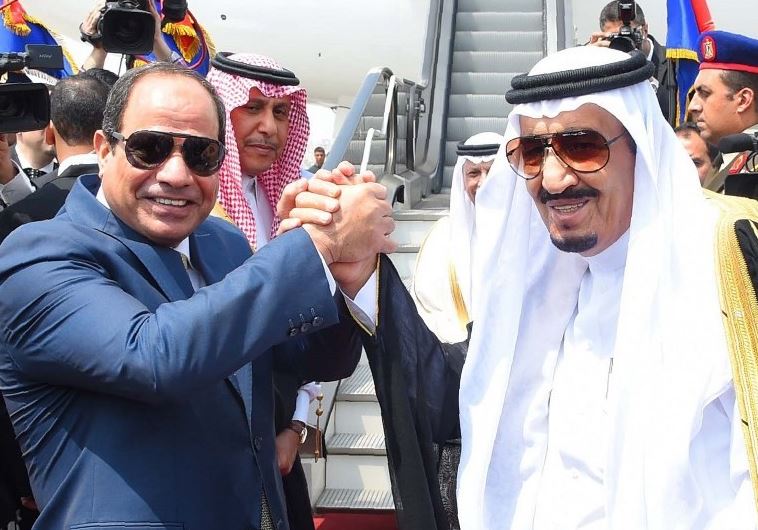Arab governments to Netanyahu: Let's talk about the Saudi peace initiative
Channel 10 says Arab governments have sent messages through third parties to Netanyahu indicating a desire to change their posture toward Israel.
 Egyptian President Abdel Fattah al-Sisi (L) and Saudi King Salman(photo credit: AFP PHOTO)Updated:
Egyptian President Abdel Fattah al-Sisi (L) and Saudi King Salman(photo credit: AFP PHOTO)Updated: